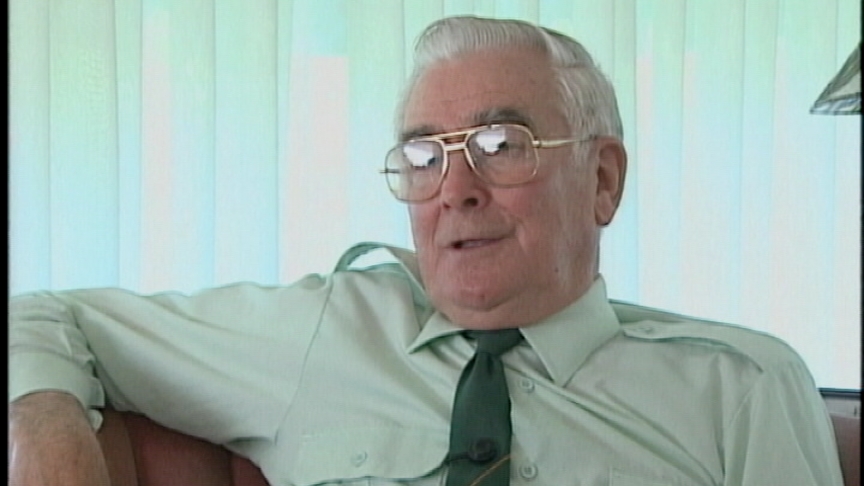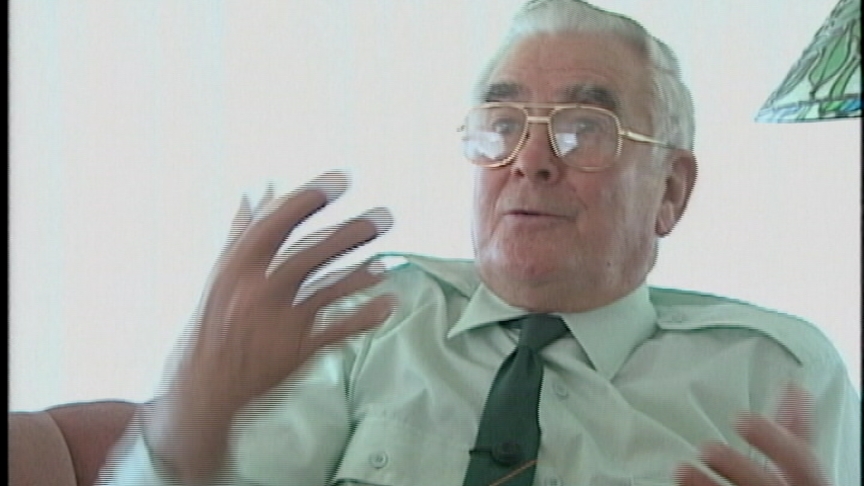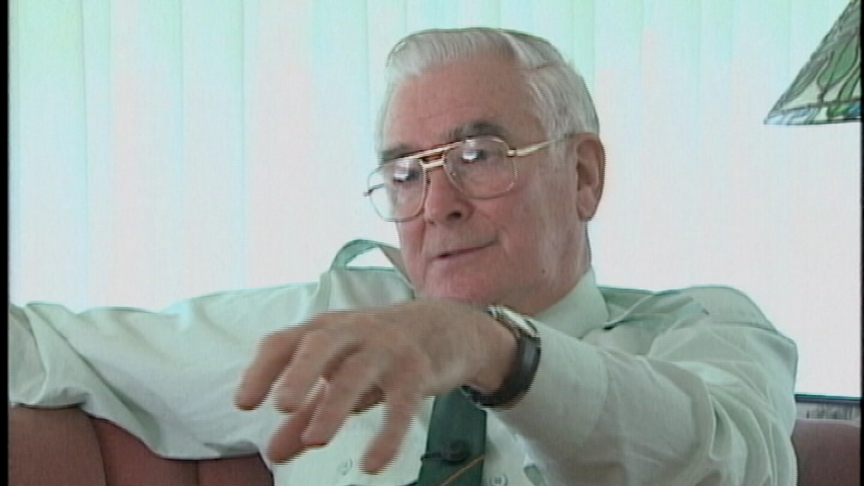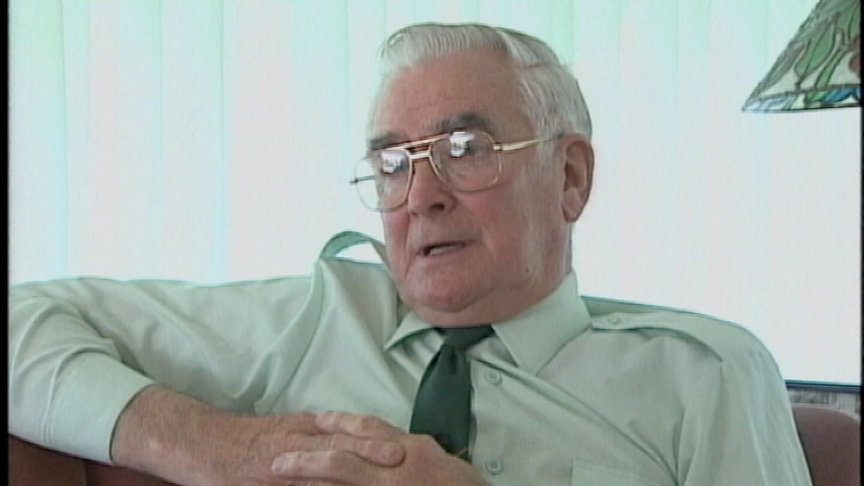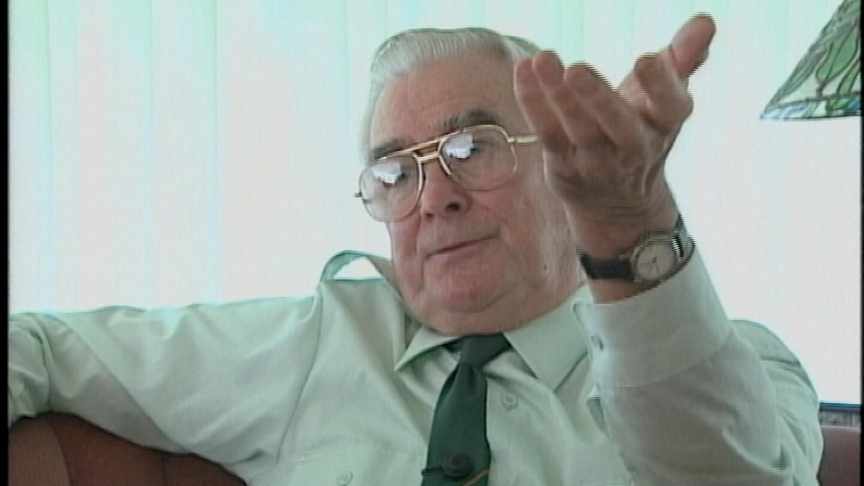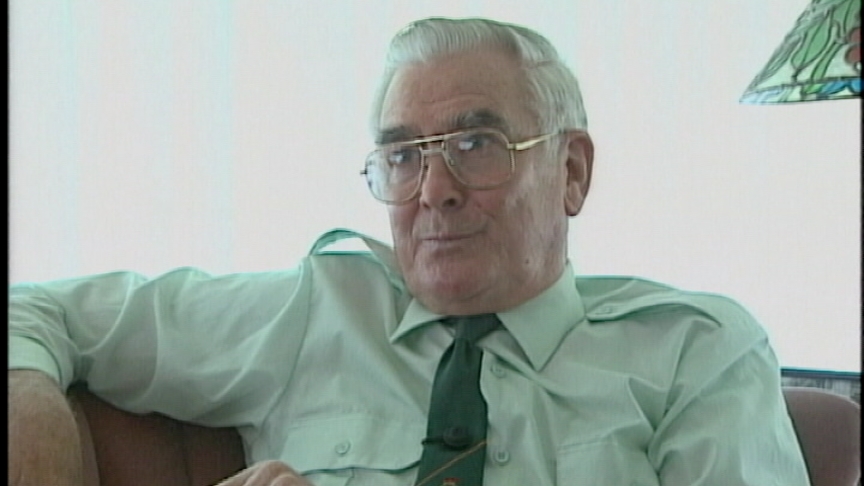I was part of a fighting patrol in the early part of October, the
3rd, 4th, 5th of October in 1952 with another officer, whom I
still see and we still golf together. We both live here in
Victoria. His name is Dusty Roads. Dusty had the fighting
component and I had the firm base component. It was my job to
take my part of the patrol, about twenty men, out and set up a
firm base, clear the way out, set up a firm base in which Dusty
and his patrol of about, I think he was slightly larger, maybe 25
men, could pass through me, do their trench raid and attempt to
get a prisoner, which is what his part of the patrol was, gather
what they could, get back through me. It was my job and my
patrol's job to stay there and make sure they exited okay, that
if anybody was following it up they would have us to deal with
before they could get to him. He ... I led out, he passed through
He did the raid. They didn’t get a prisoner. They took at least
one casualty that I can recall, a badly wounded man. They came
back through us. I stopped him on the way through and said, “Are
you all clear?” And he said, “Yeah, we’ve got
everybody.” And I said, “Okay, we’ll stay here until you get
well clear then and then we’ll start to move back.” So he moved
back through us and at that point I began to sense that there
was some movement behind him and I knew it wasn’t him. At least
I took his word for it that it wasn’t any of his people.
So we were disposed in three groups on this very small feature
which had this trail along which Dusty came back through it and
waiting for him to get well enough clear so we could vacate.
I began to thin my group out and send them back along the same
trail with the instructions to set up a spot for us to pass
through so if we were being pursued we would hopefully pass
through our people, then they could fire and get rid of or deal
with whoever was following us. In the process of thinning out it
became quite obvious to me that on either side of this small
little salient that we were on there was shuffling and movement
and some talking going on. I couldn’t understand it and quite
understandably so, I don’t speak Chinese, but I could hear the
whispering and various things going on and what they were
attempting to do was get around it and flank Dusty’s patrol. Well
my job was to prevent that. So I called down on
artillery fire further out on the trail which dealt with anything
in-depth, thinned out everybody except a machine gunner and a
signaller with me, and I told the machine gunner to take his
three grenades and I took my three grenades and I said,
“Pull the pins on yours and throw them all down on that side and
I’m going to throw my three down on this side and then we are
going to high tail it out of here as fast as we can.” Well, that
was done. We threw the six grenades and got a response of
some small arms fire, a hell of a lot of yelling and screaming
and we just vacated the feature. I ran back and got through my
firm base, so to speak, and said, “Let’s get the hell out of
here before they recover from this and catch up to us.” So we
ran back another two or three hundred yards and started to
catch up to Dusty’s patrol. So we said, time to put down stakes
again and let him get clear cause he was carrying a casualty at
this point and it was ... their movement was slower than ours. In
any event we did this another couple of times except we were
not faced with any further difficulty. That turned out to be
a successful patrol from my point of view. In other words, we had
done what we said we were going to do and what people were
counting on us to do. Dusty, I think, was a little disappointed
in that he did not get a prisoner, but the job that he was
given was a pretty tough one and they only took the one casualty
which is, I think, quite remarkable in what I could hear
and see of the fire going on in those trenches in front of me.
‘Cause I could see his position, where he was going, about 400
yards ahead of me and the sky was lit up by flares eventually and
it was a nasty bit of work that he was asked to do and I think
they did a good job of getting into the position to do it.
Unfortunately they didn’t bring any Chinamen home, but they
brought their own fellas back, which was important.



